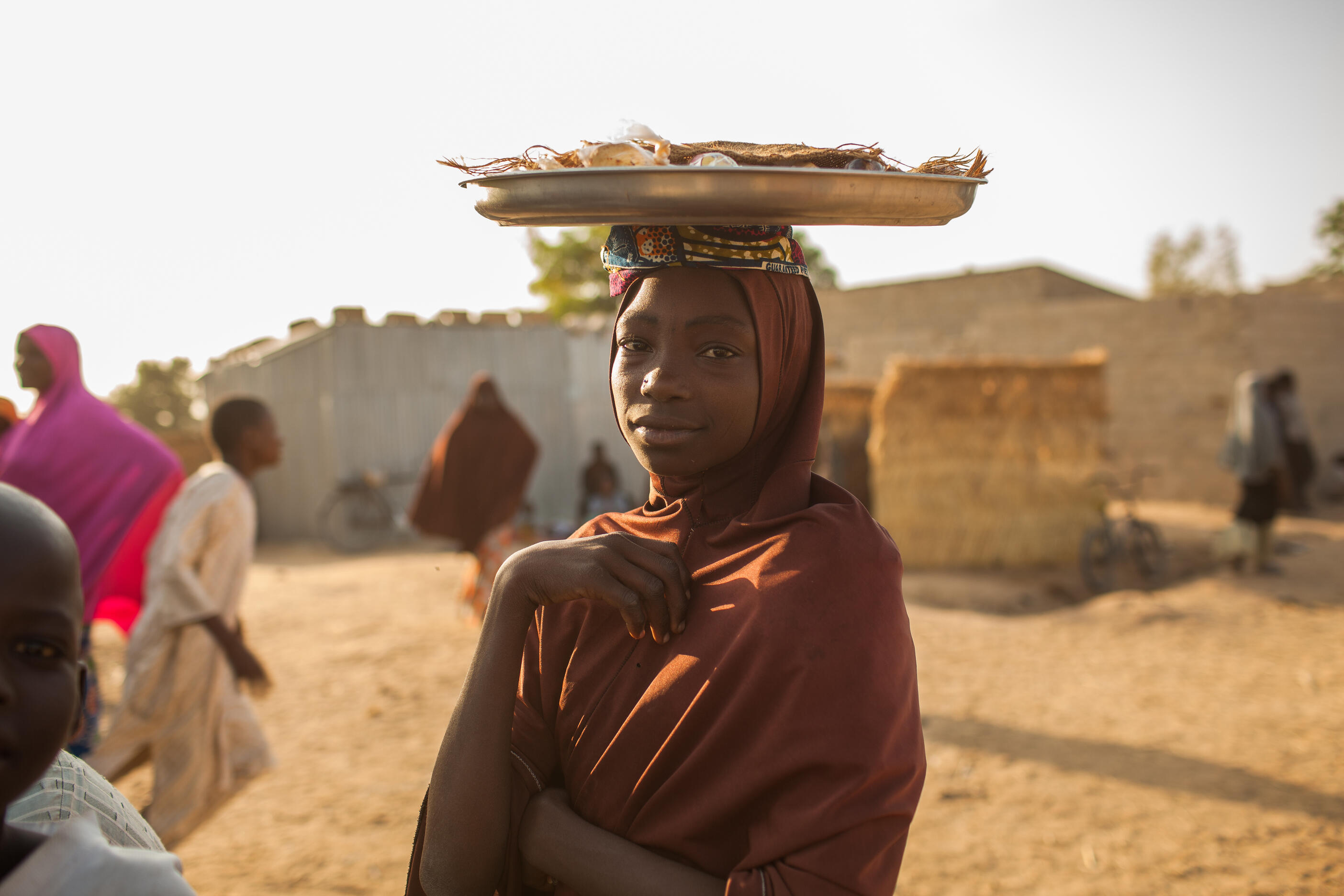
When conflict strikes, women and girls are often the hardest hit. Currently, more than 32 million women and girls of reproductive age worldwide require some form of humanitarian assistance.
Clearly, no humanitarian intervention would be complete without listening to these women and girls and responding to their needs. When it comes to family planning, studies have shown that 30% to 40% of women experiencing displacement do not want to become pregnant in the next two years.
It is vital that these women and girls are not left behind. As the Family Planning Summit in London approaches, we listen to the stories of four women supported by the IRC in four different countries, who explain why they chose to use family planning services, and what it has meant for them to have access to contraception.
Maryam
From: Borno State, Nigeria
Currently internally displaced within Borno State
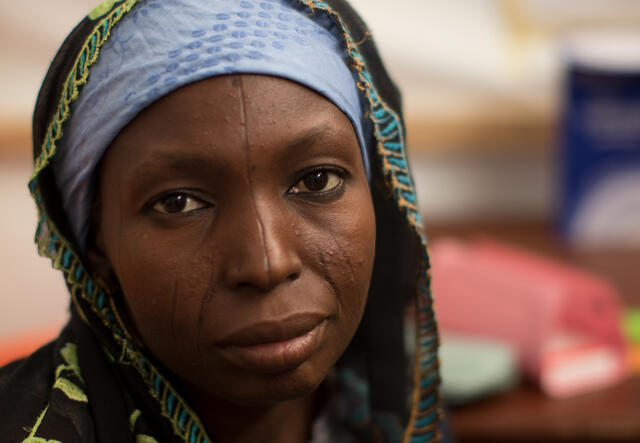
Maryam is from Borno State, North-East Nigeria. Two years ago, she was forced to flee her home when Boko Haram fighters came into her town and started shooting.
“We were frightened that we wouldn’t see the next day, that we would die,” she recalls. She remembers seeing a pregnant woman who lost her life while trying to run, and others who gave birth while on the run from Boko Haram.
Now attending an IRC clinic, she explains her decision to use family planning:
“I want a break because I’ve given birth enough. I have three boys and four girls. In our present situation, even if you live with your husband and God is helping, you are supposed to have a break. So that the children that you give birth to will have good food and live in a happy way.
The three girls that are with me, I would like to feed them. If possible I would like to send them to school. I would like to clothe them and buy them all the little things that kids like.”
Celestine
From: Kinshasa, Democratic Republic of Congo
Living in: Kakuma, Kenya
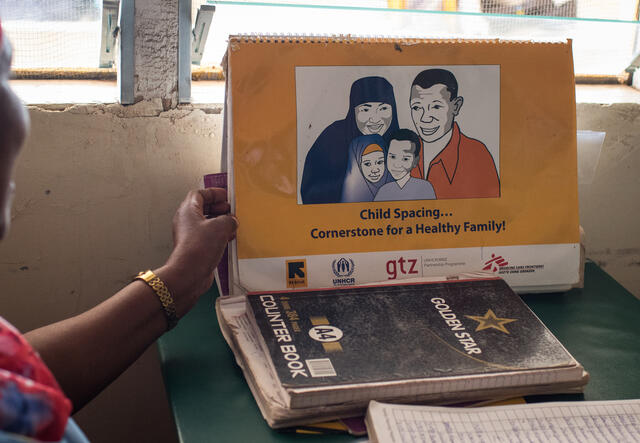
Celestine knew she had to leave home in Kinshasa, the capital city of the DRC, when armed men broke into her brother’s home and kidnapped him and his wife. She initially fled to Goma, in eastern DRC, but she was raped when she arrived, so she had to leave the country.
Now she lives in the refugee camp of Kakuma, in Kenya. She has no children, but has miscarried four times.
She explains why she decided to seek family planning services for the first time, and why she began to take contraception:
“After I lost my fourth baby, the doctor advised me to relax the uterus for a whole year. That was back in 2016.
Now the year has elapsed, I have come back, to seek council about how best to proceed. Now, I would like to have a child.”
Felicite
From: Burundi
Living in: Nyaraguzu, Tanzania
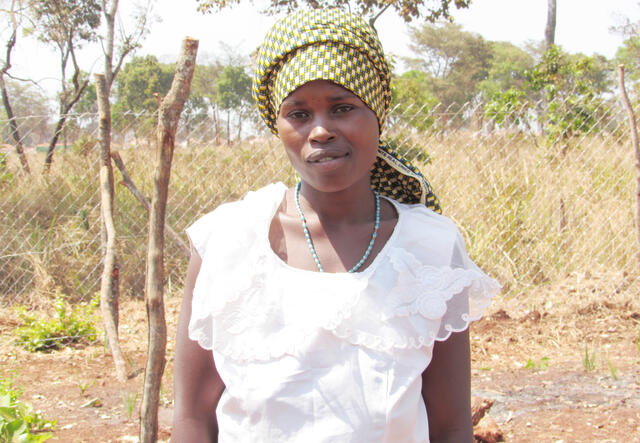
Felicite is 34 years old. She fled her home in Burundi after her farm was destroyed, and she received multiple threats to her life.
Although she is outside the country, Felicite still lives in fear in the refugee camp in Tanzania. Not wanting to bring another child into the camp, she decided to seek out her first method of family planning, an implant that will prevent unwanted pregnancies for five years.
“I already have five children, and it is difficult to take care of them. I don’t want another one I cannot take care of.
“Living in fear is so hard. It’s also hard for the children, who aren’t in school. They are sleeping outside, and they don’t have purpose. We are all unhappy, and hoping for support. But today I came here to receive the implant. This has made me happy, I want to continue using this.”
Nicole
From: Democratic Republic of Congo
Currently internally displaced in the Taganyika province, eastern DRC
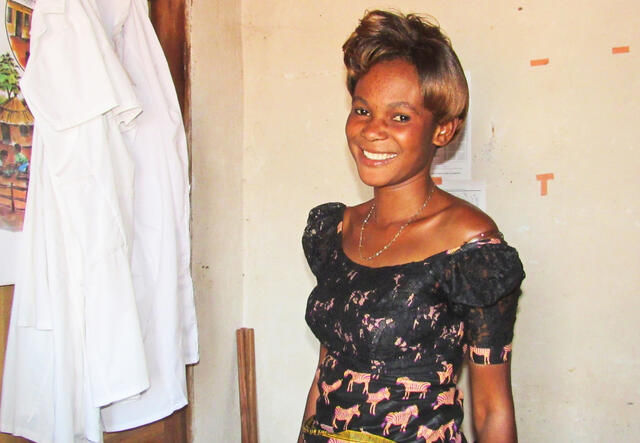
Nicole heard about family planning for the first time when she was in church. She found out from a community health worker who was vaccinating her child.
She chose to start family planning to get her four children the best future possible, and to take control of her future.
“I decided to start family planning because I already have four children and no husband. I want to make sure that my four children can grow up in good health, financially stable and with the opportunity to study.
I’m very relieved that I am receiving family planning. I am in a desperate situation, because I do not have money and without family planning, I may be at risk of giving birth again.
I have two girls and two boys. If my daughters are poor as well, then I hope that they will also use family planning. I want my children will grow up to be president, director, and a minister."
What the IRC is doing
The IRC provides family planning services to women and girls in crises across the world. Just like food, water, and shelter, it is a life saving intervention for women and girls in crisis. This is based on evidence: it is estimated that if contraception was provided to all those around the world in need, unsafe abortions would drop by 74%, and global maternal death could be reduced by 29%.
Since 2011, IRC has launched 13 reproductive health responses, including in fragile contexts like Syria, South Sudan and Nigeria. Nevertheless, there is still a huge funding gap for family planning services in emergencies, leaving thousands and women and girls at risk of unplanned and unwanted pregnancy.
As the Family Planning Summit approaches, the IRC is calling on leaders to recognise family planning as a lifesaving response, and make sure that women and girls in crisis settings are not left behind. The future of women like Maryam, Celestine, Felicite and Nicole depends on it.
Read more about our advocacy work on family planning and our asks for the London Summit here.
Read more about IRC’s work with women and girls and in Nigeria, Kenya, DRC and Tanzania.